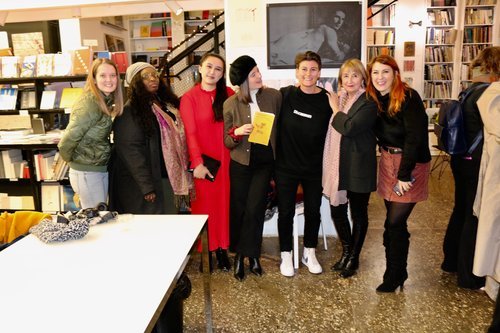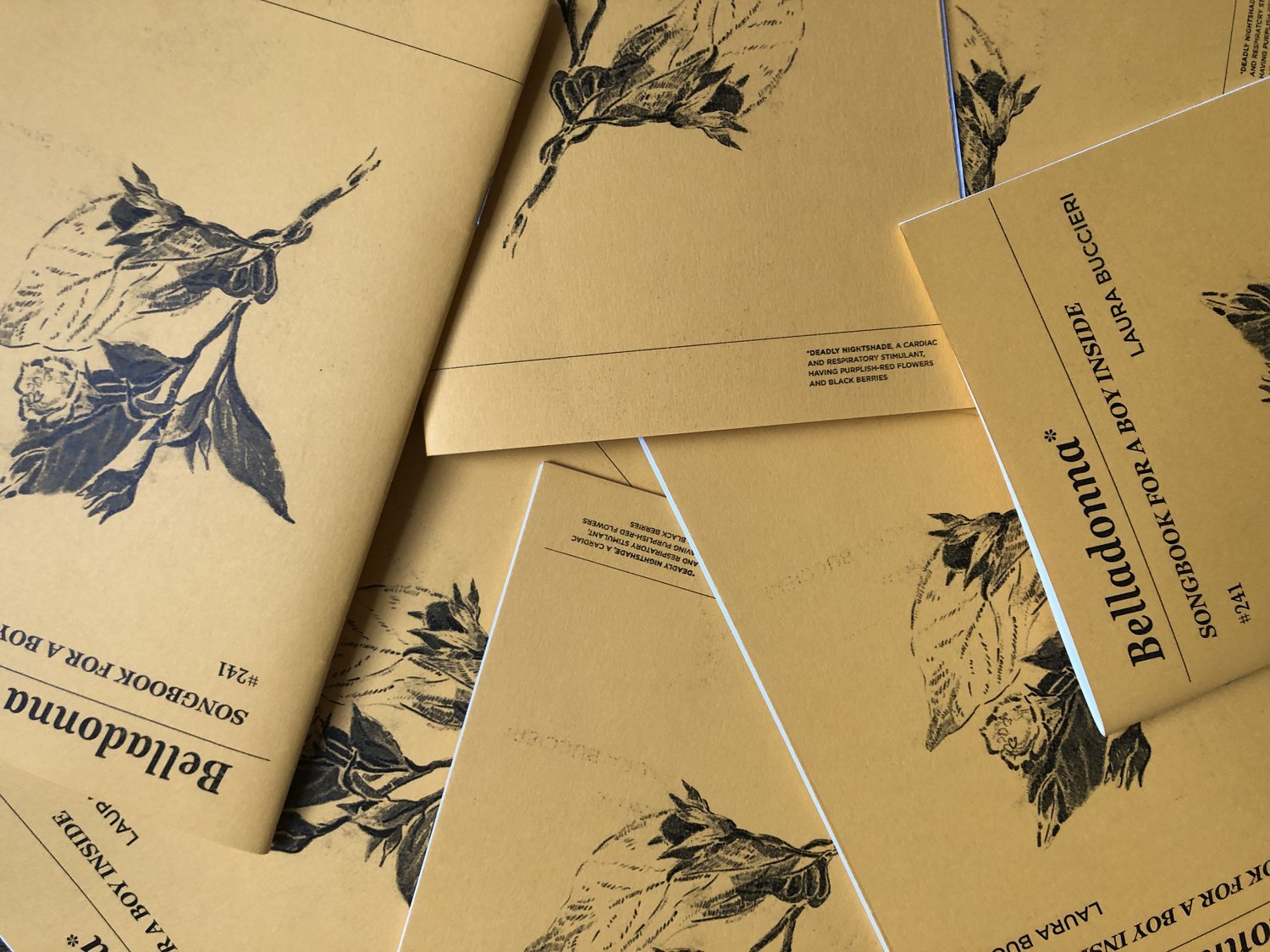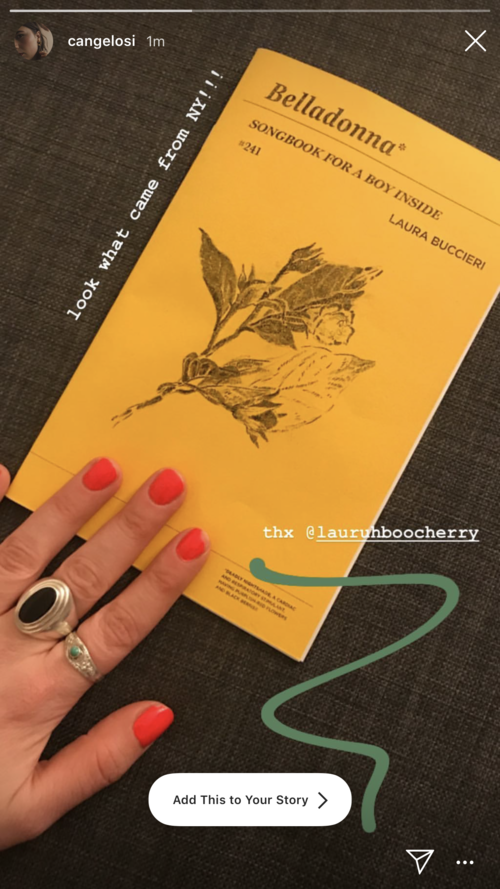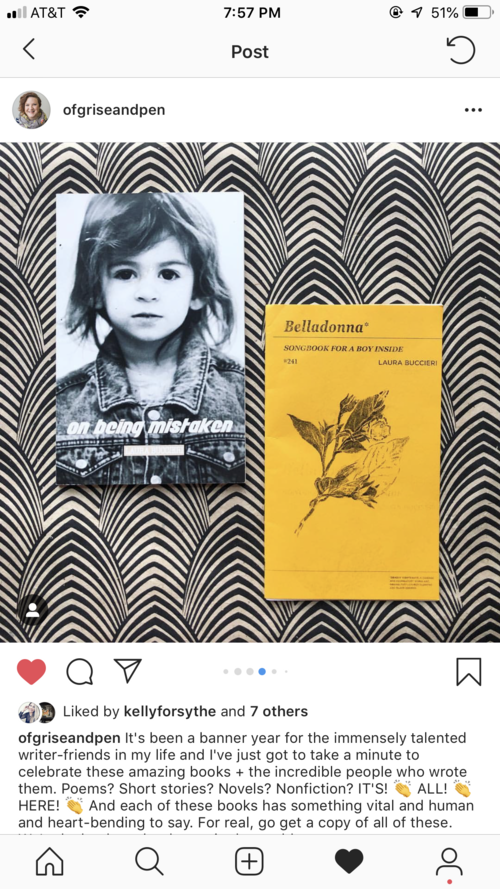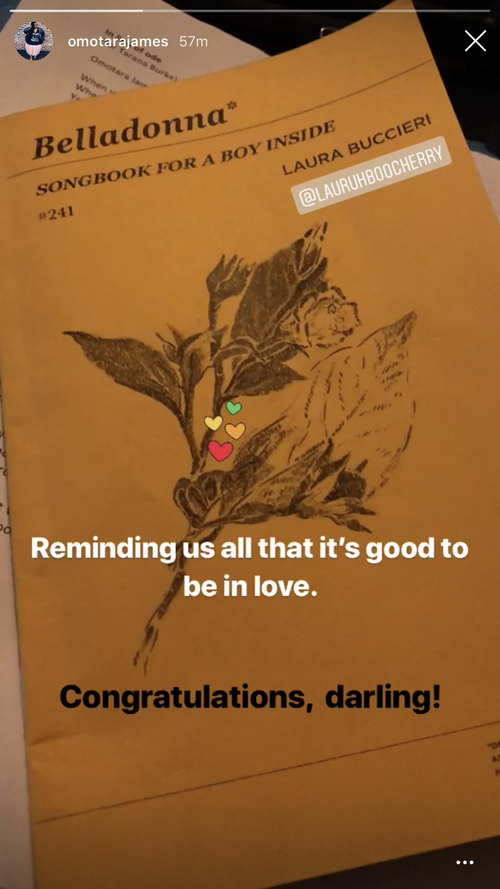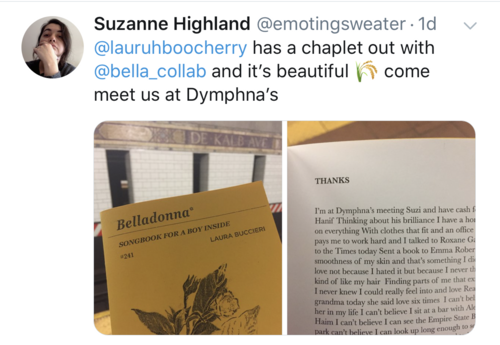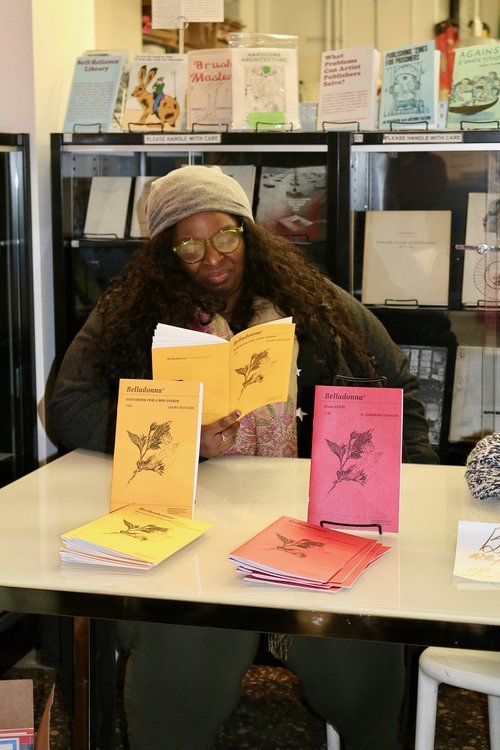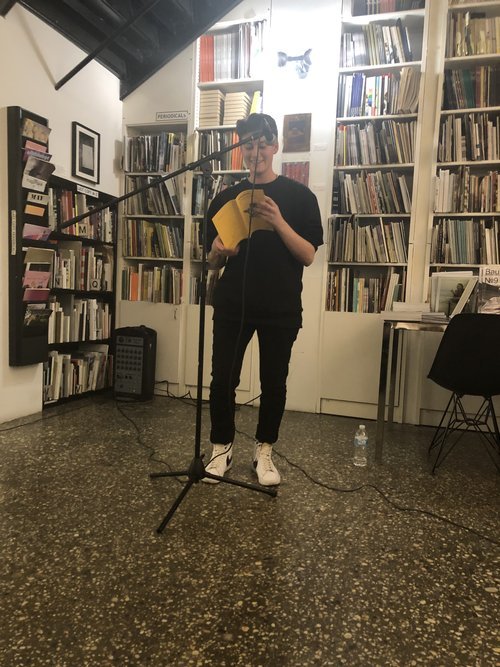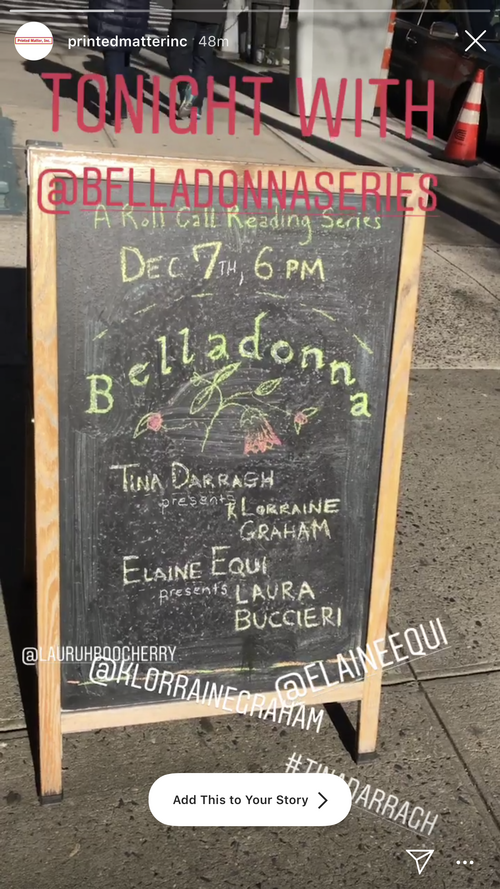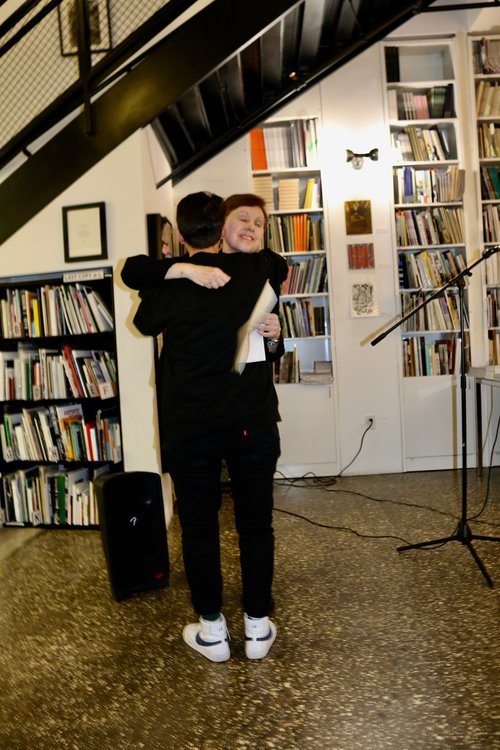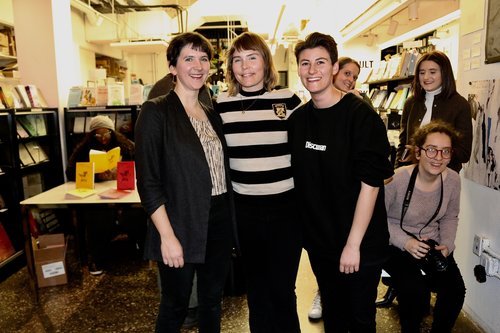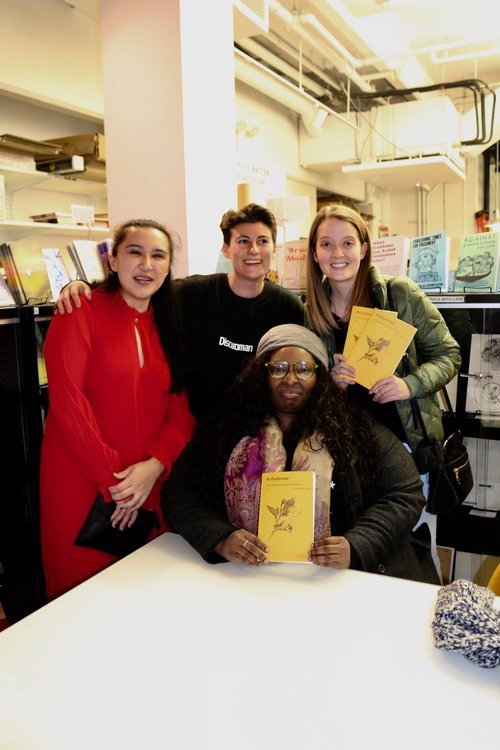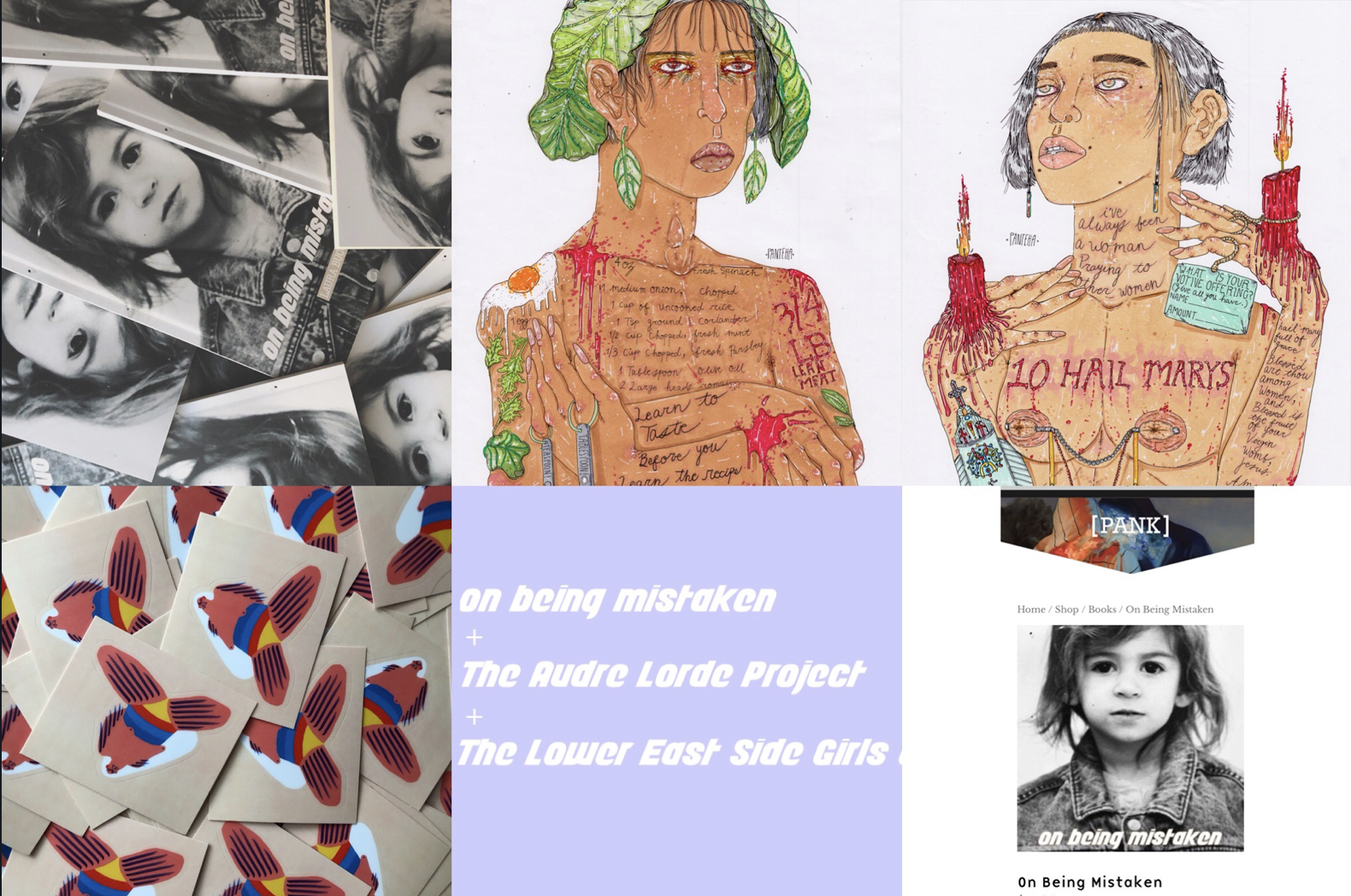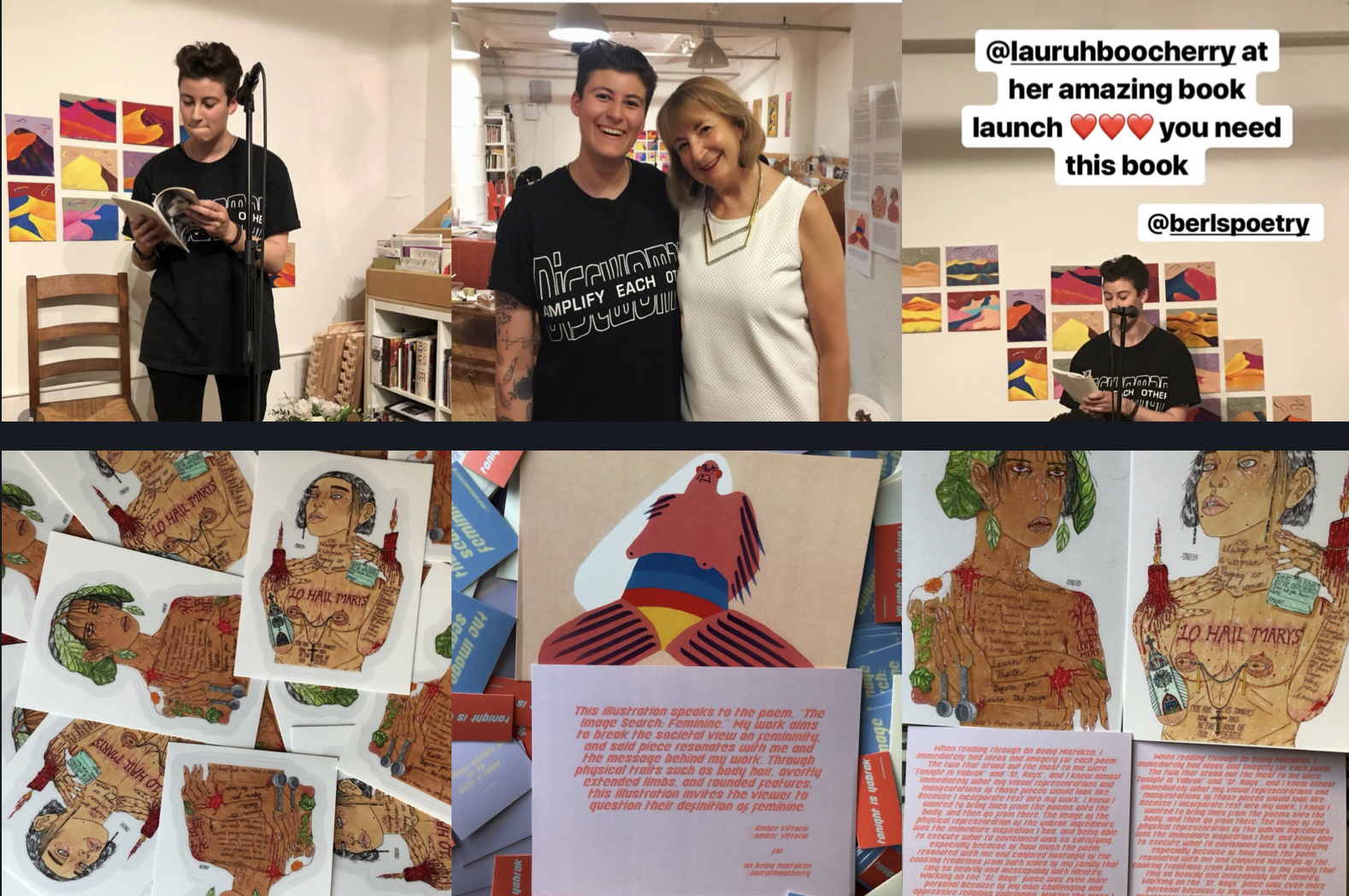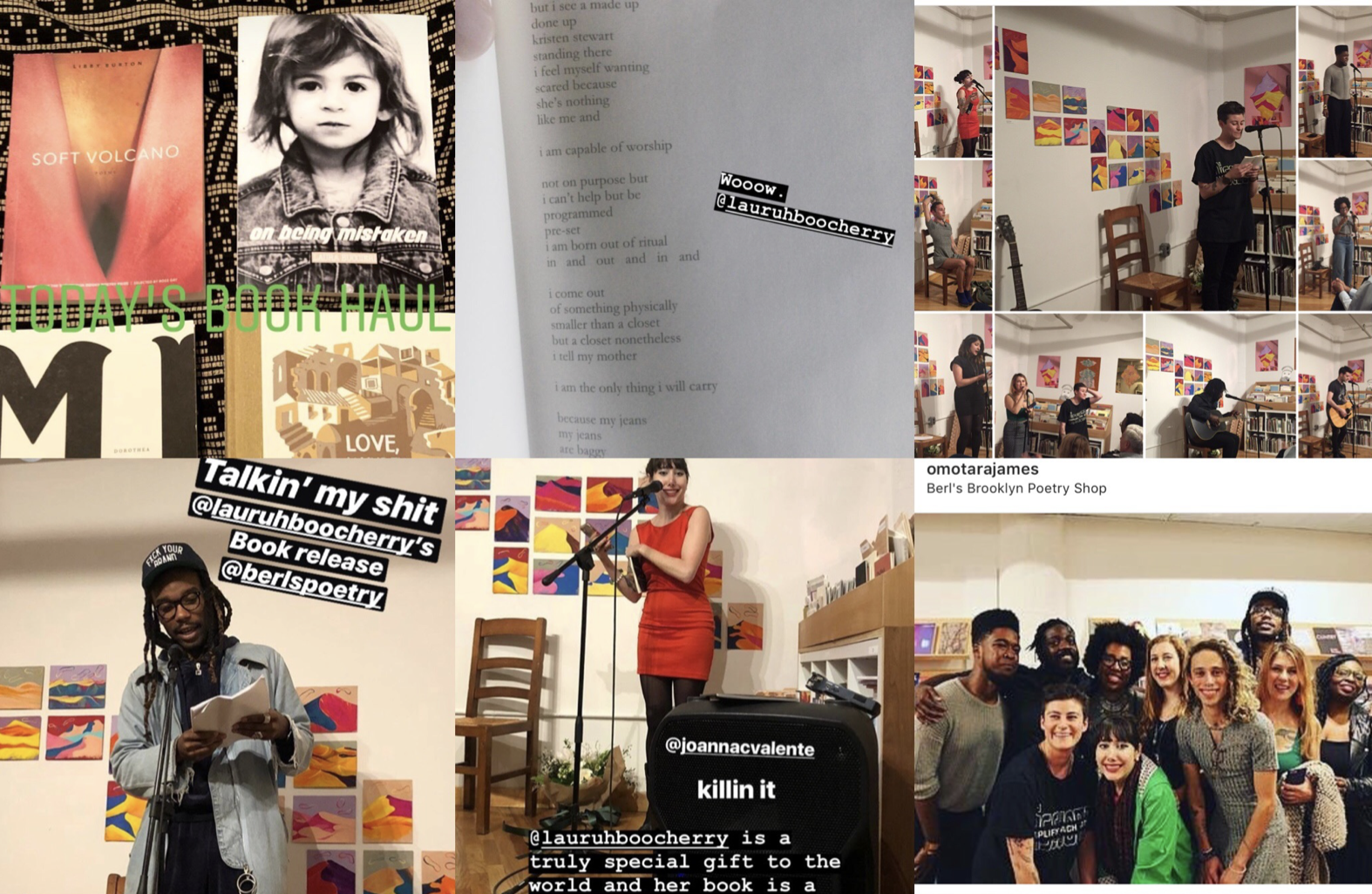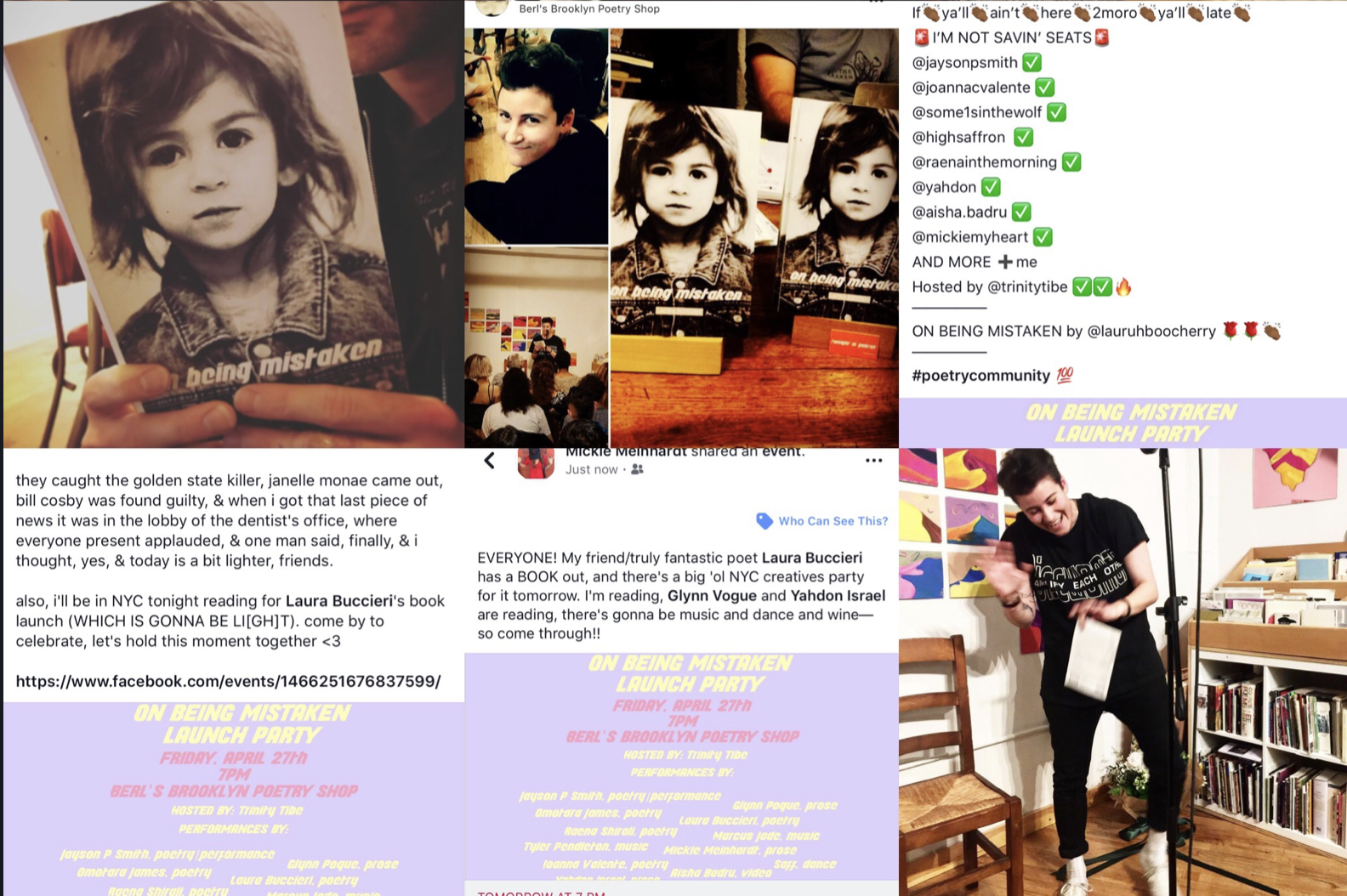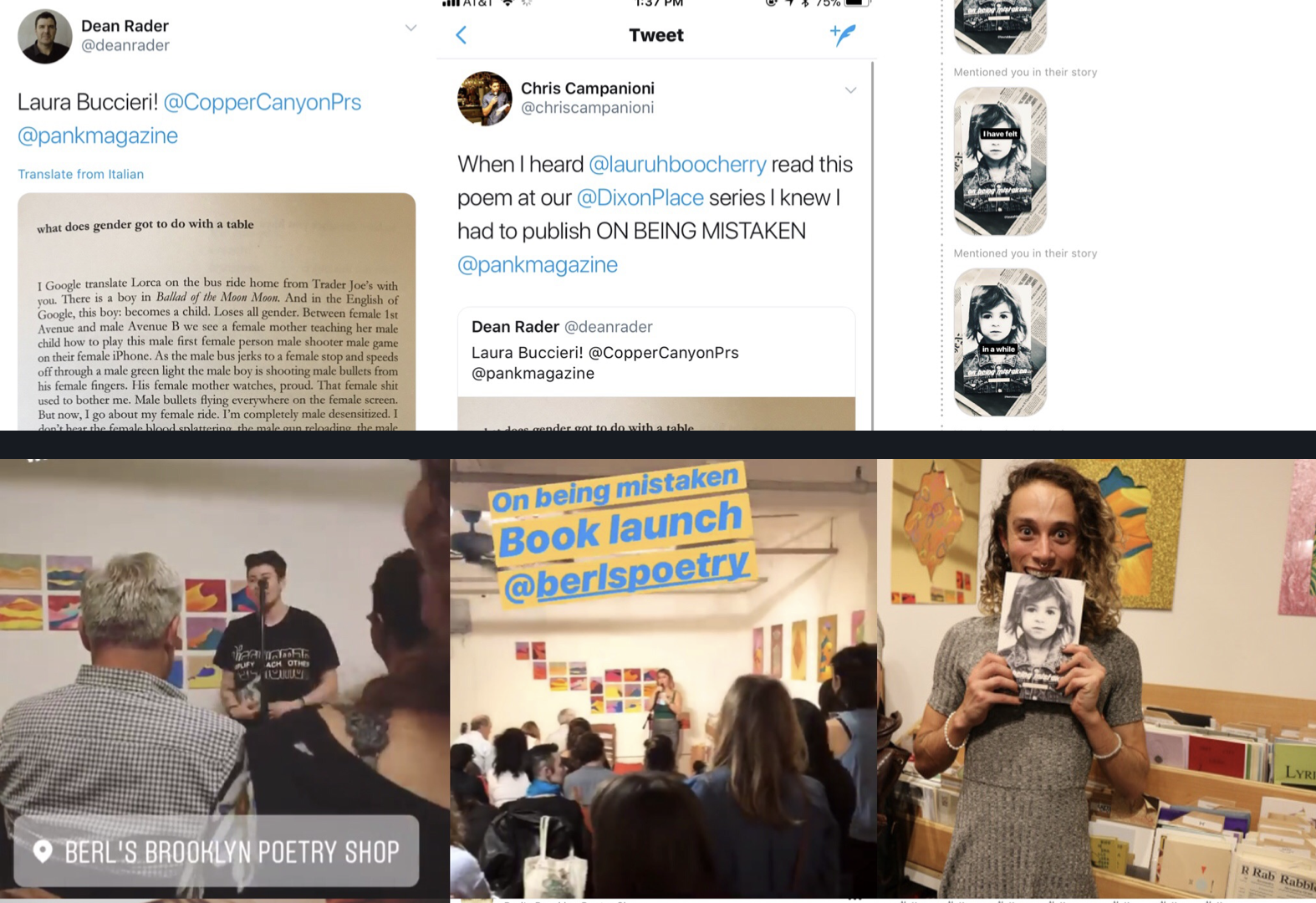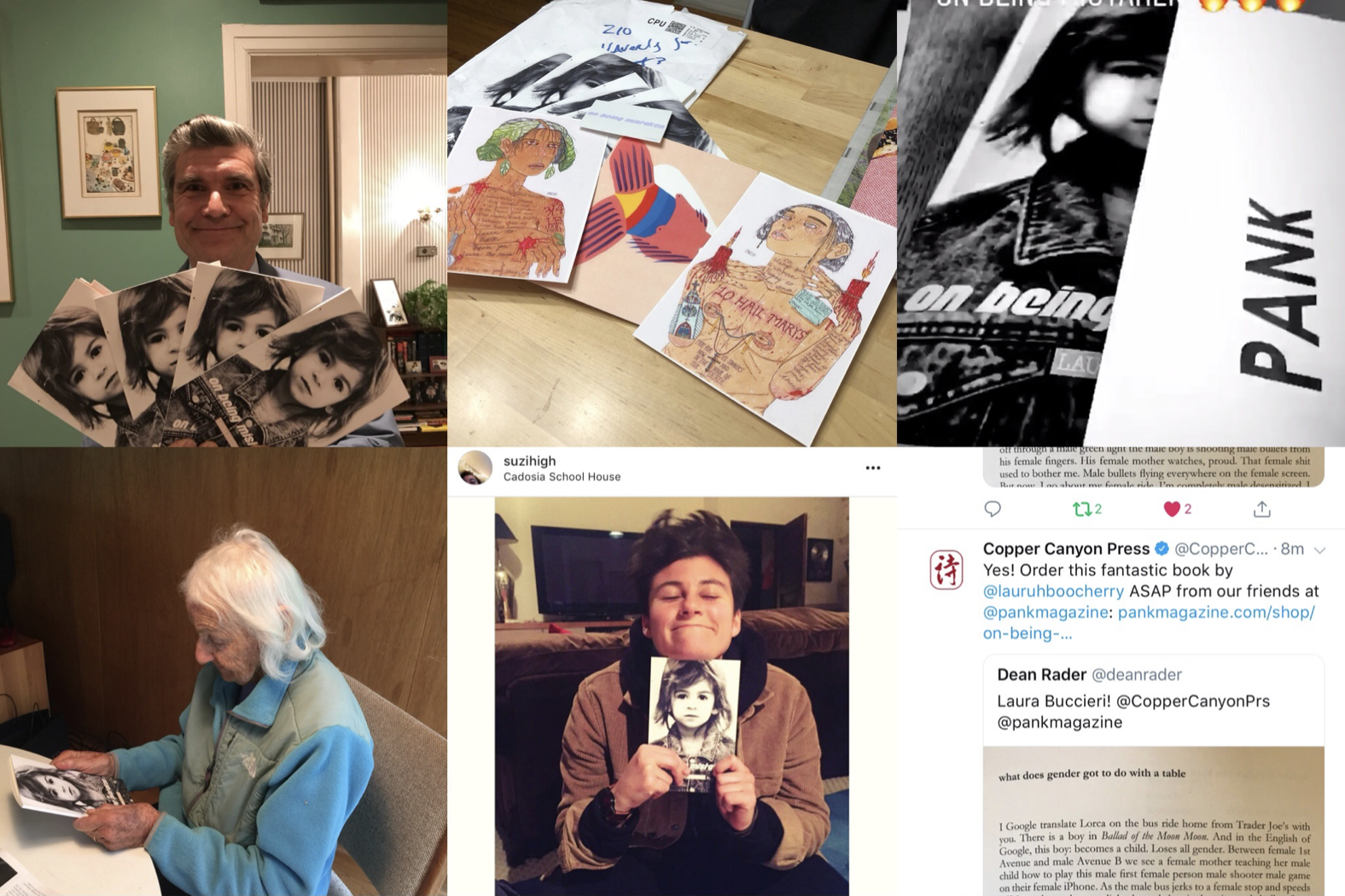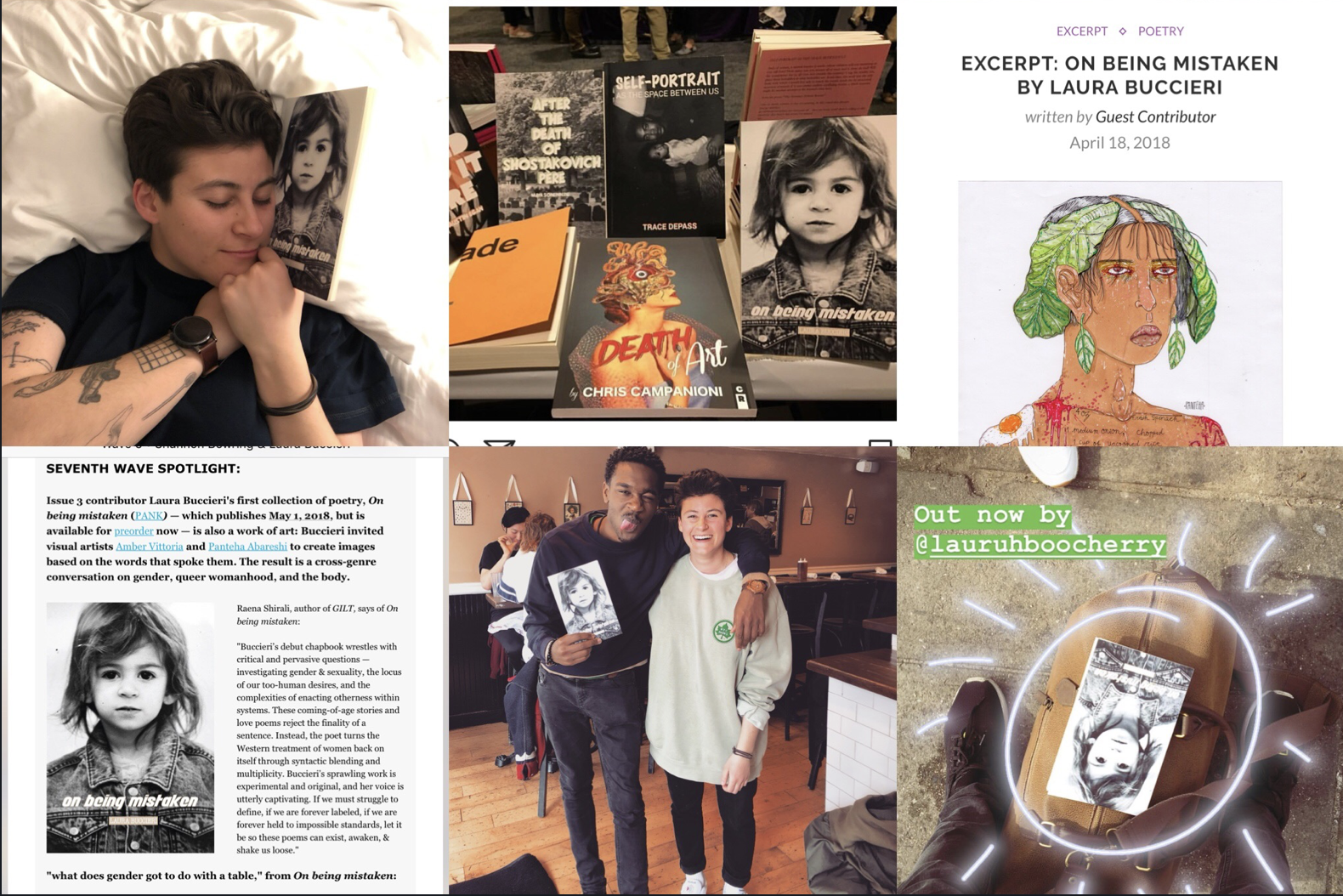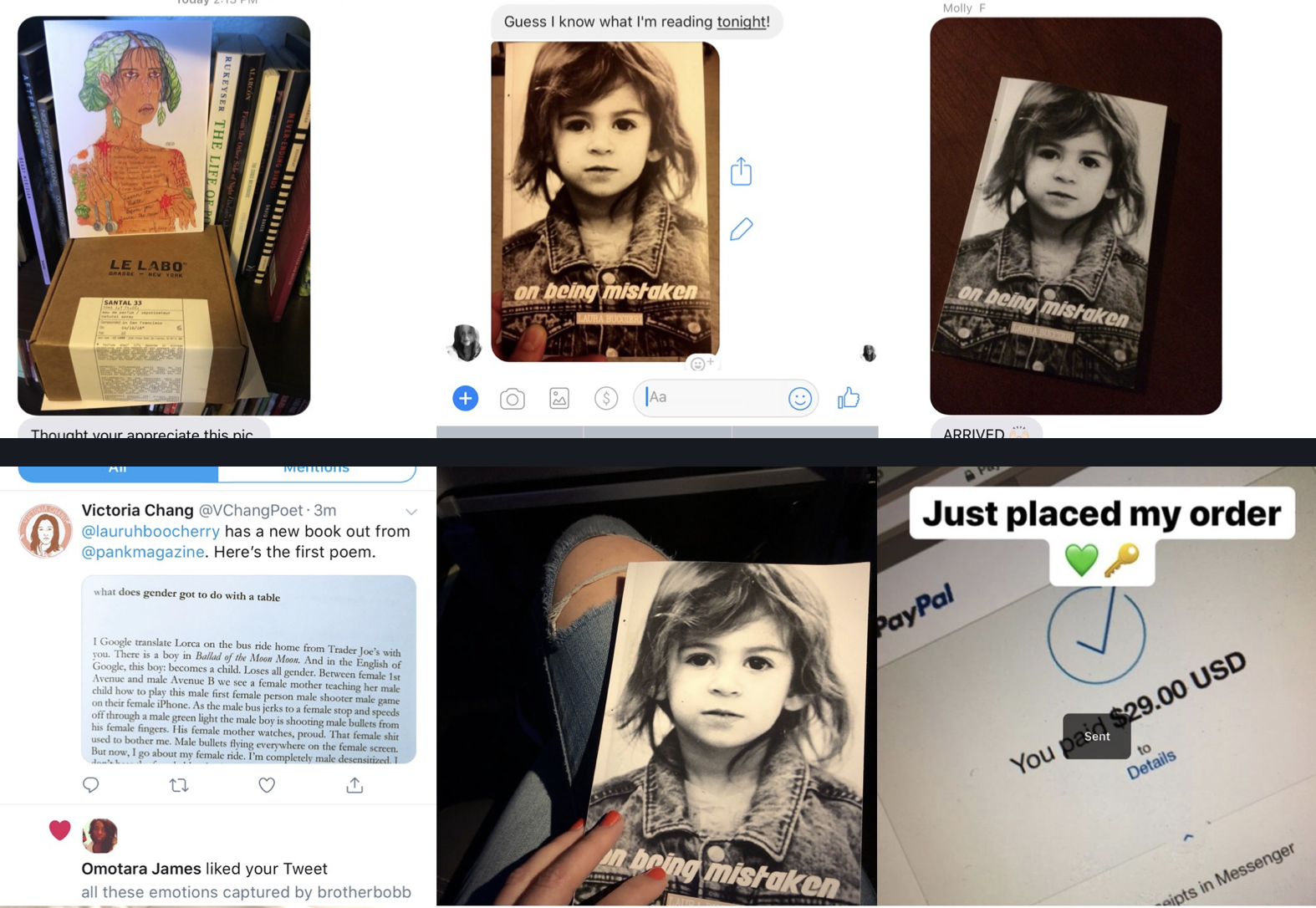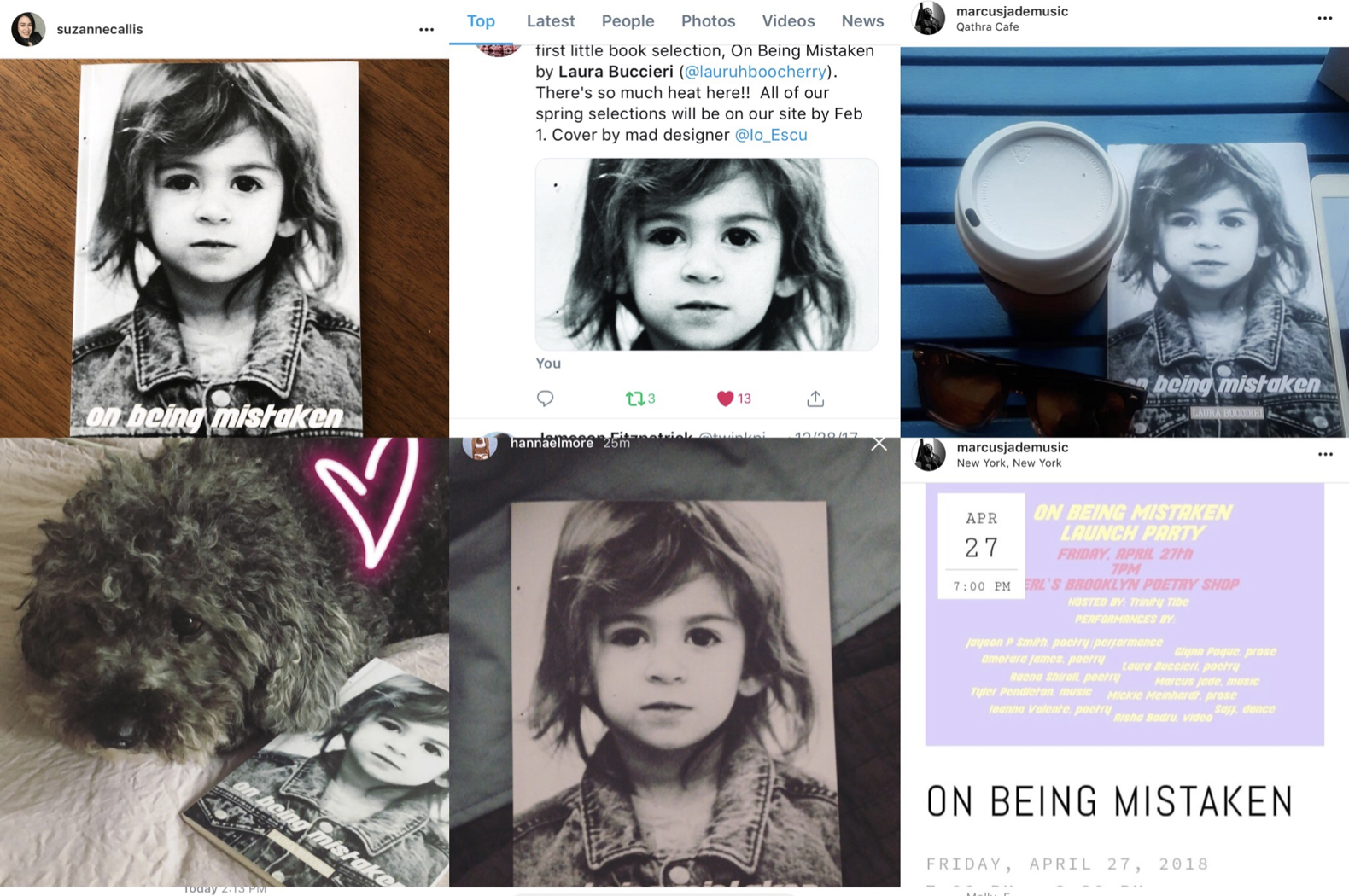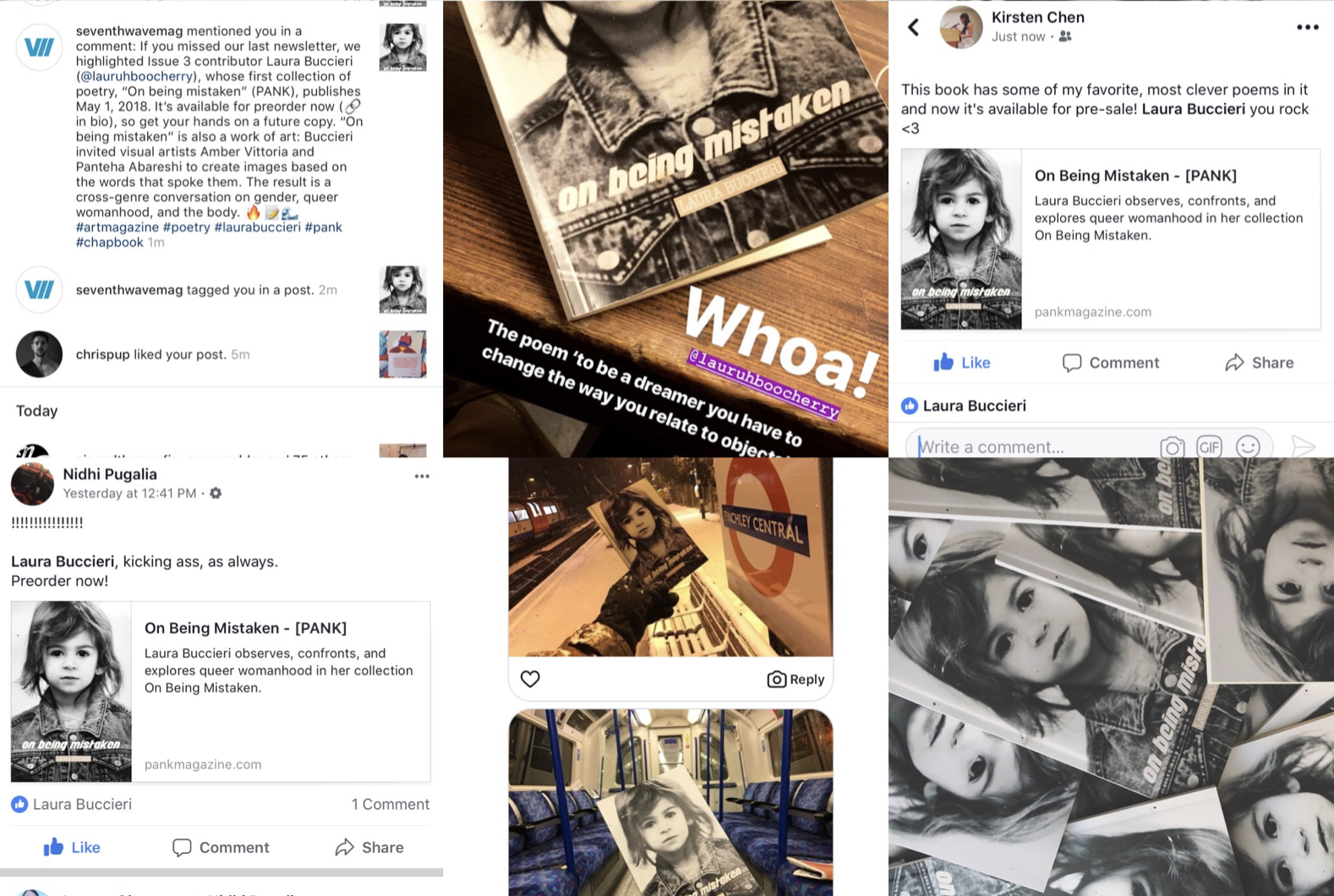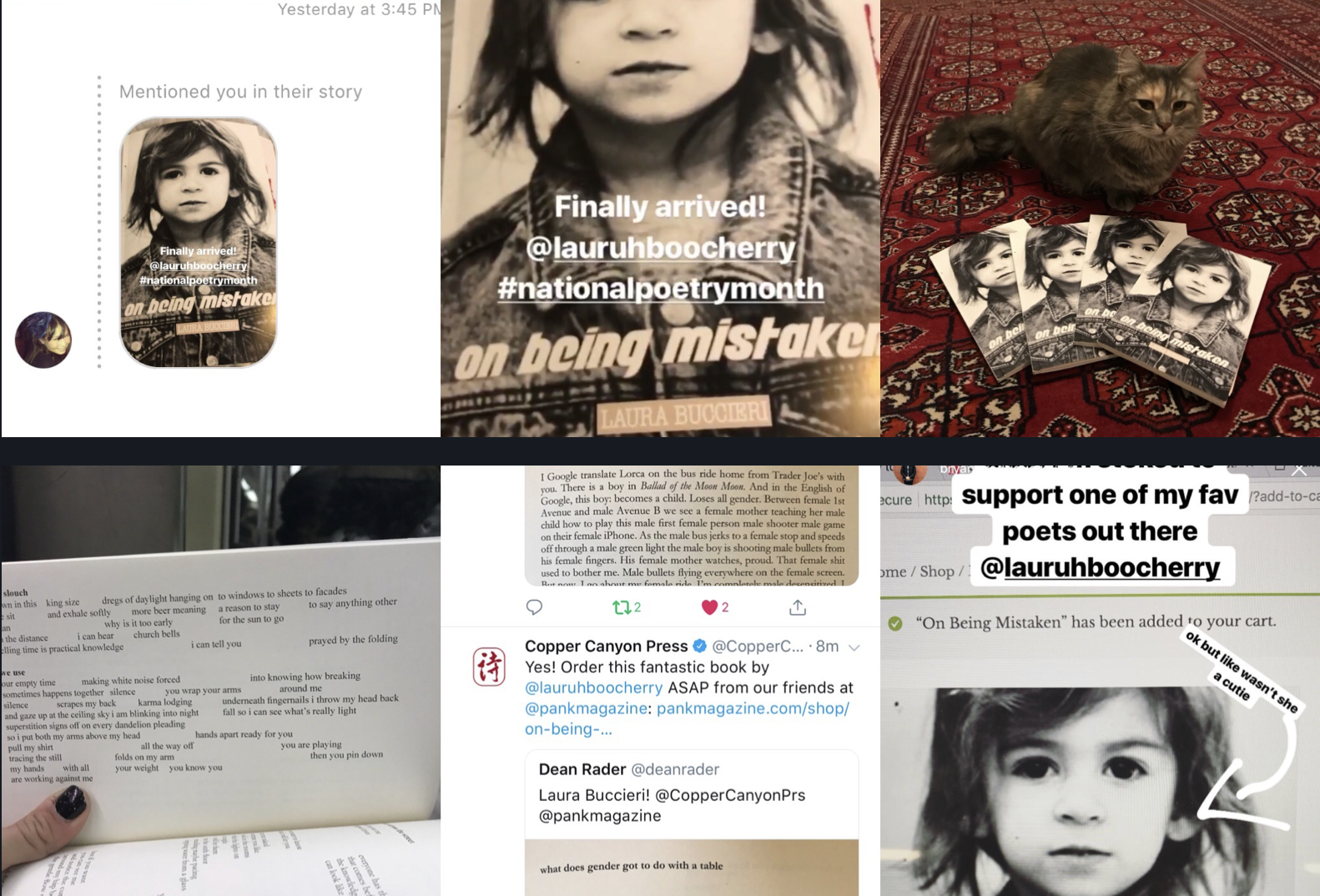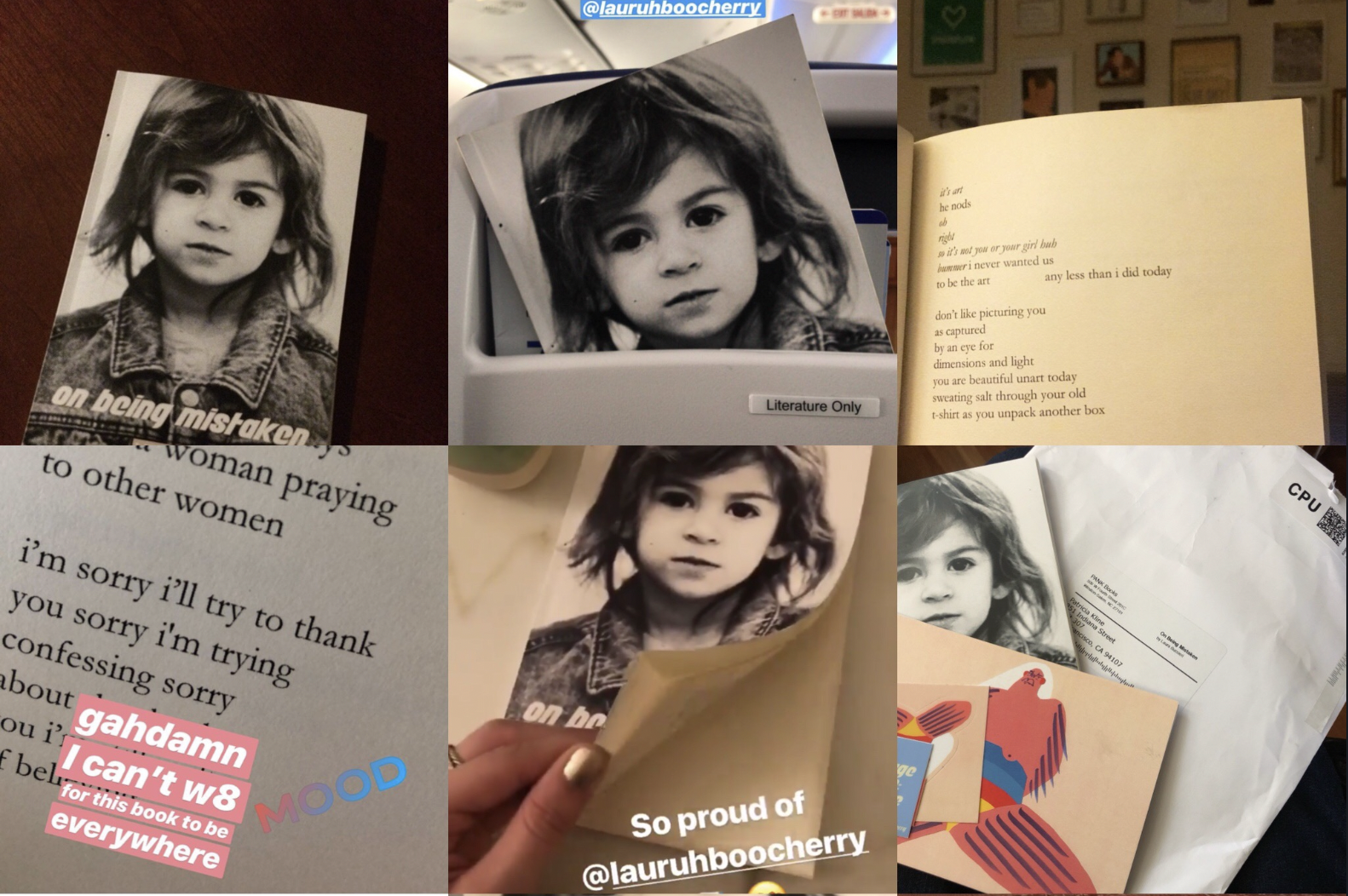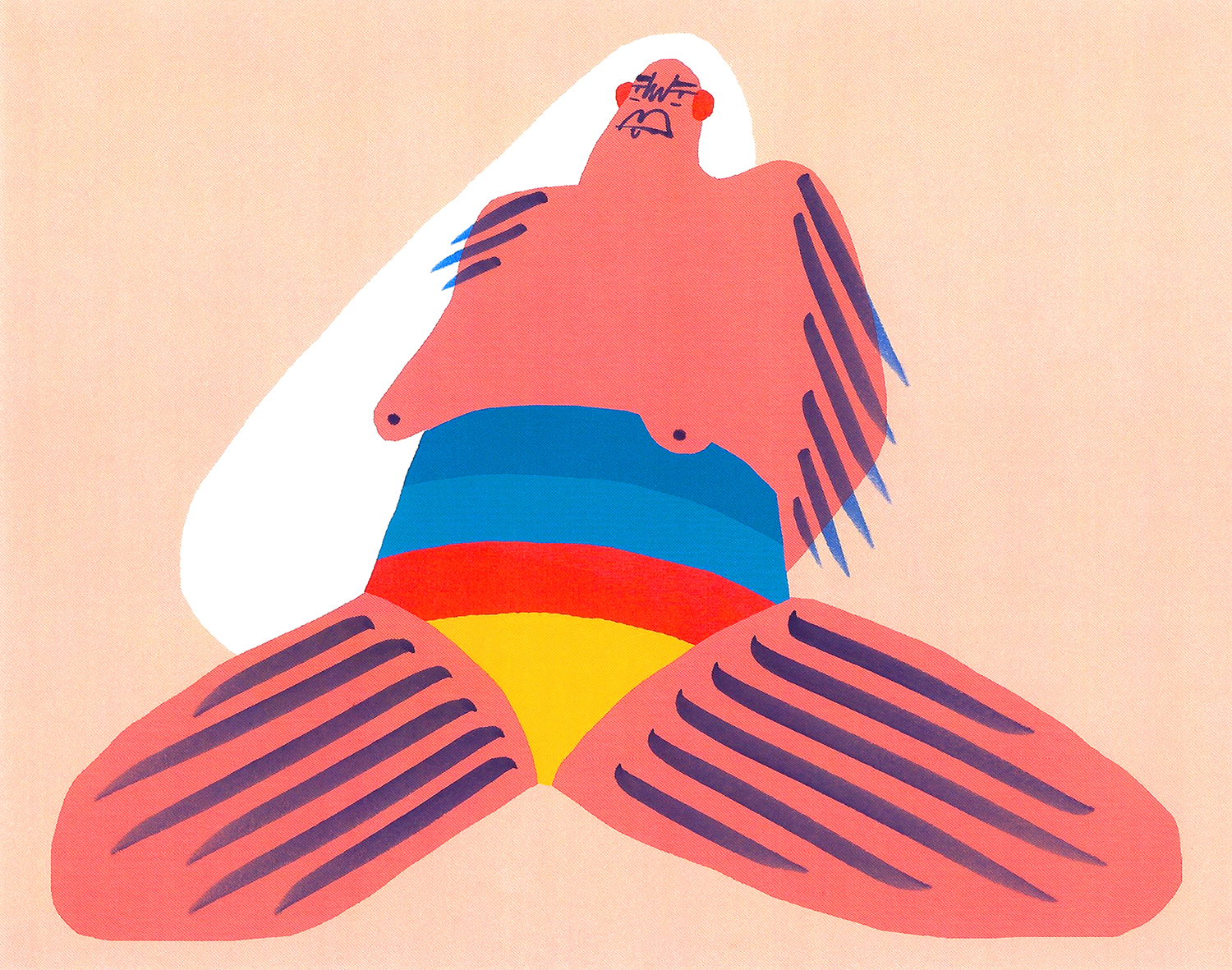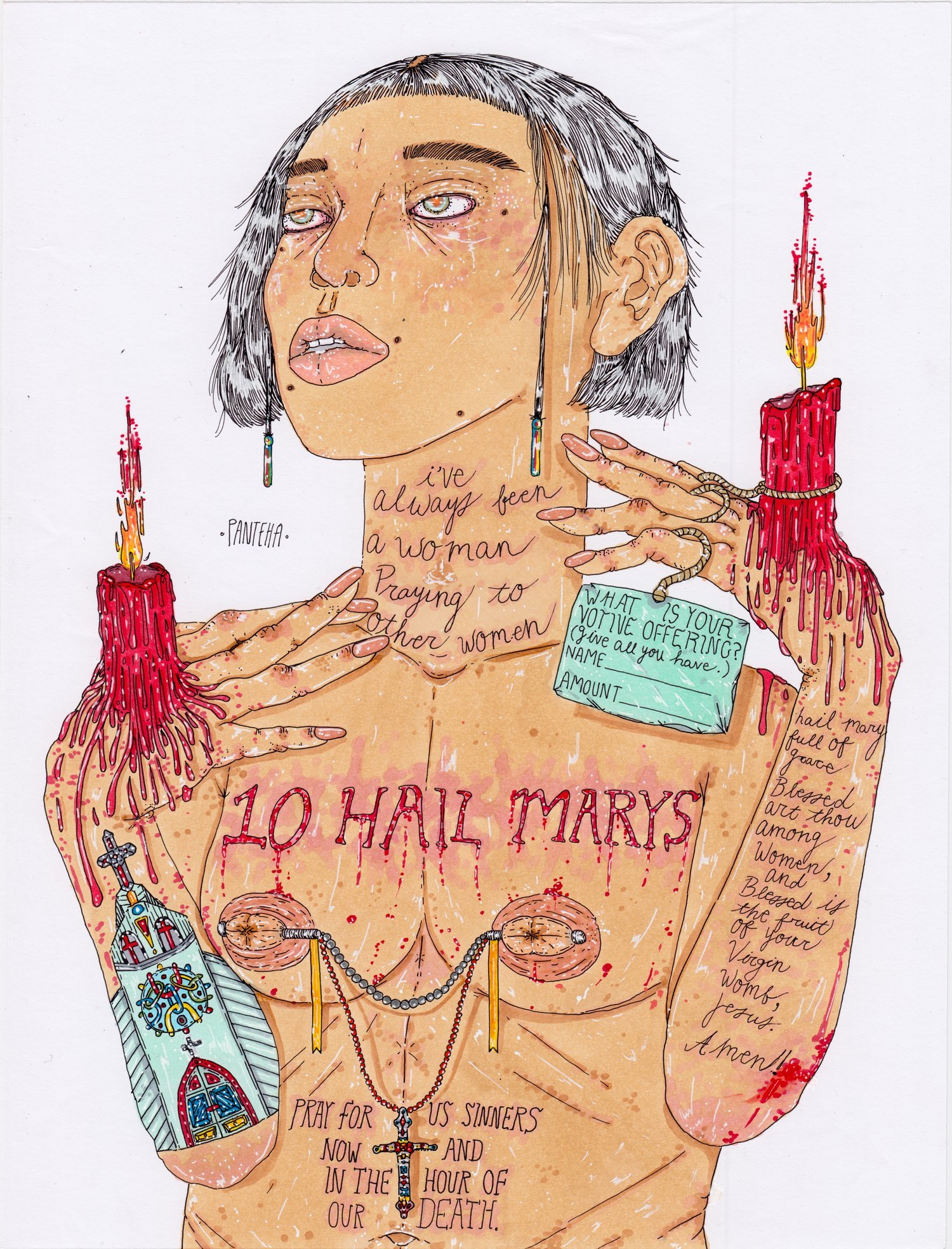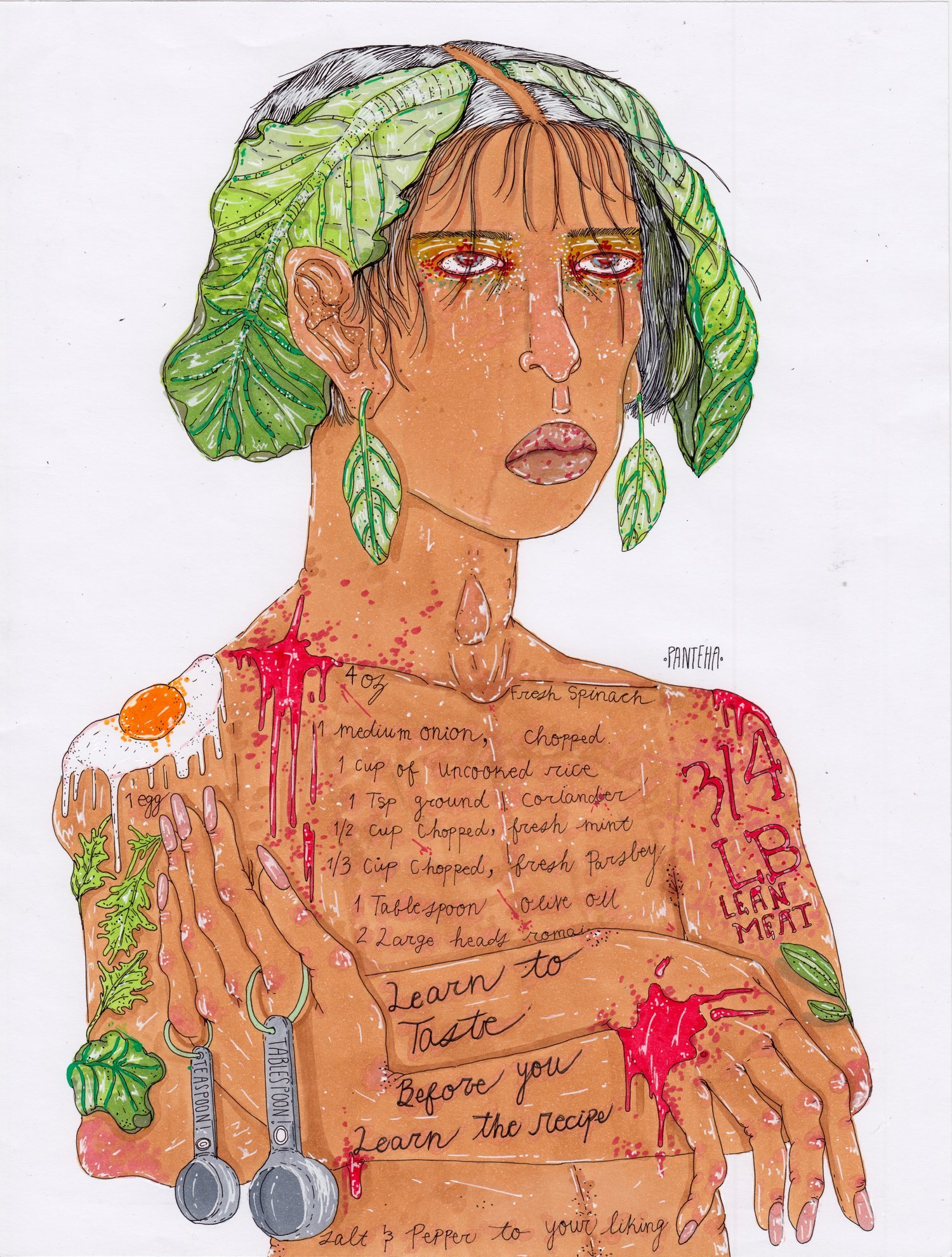Songbook For A Boy Inside (Belladonna, 2018)
Purchase/download here (Chapbook #241)
Praise for On Being Mistaken
Of Kristen Stewart and the nature of wanting, Laura Buccieri writes, “i am capable of worship // not on purpose but / i can’t help but be / programmed.” On Being Mistaken renders the magazine, microagression, and catcall fragment, as the speaker attempts to escape gendered expectations only to find all paths to actualization begin, and end, in the world around us. Buccieri’s debut chapbook wrestles with critical and pervasive questions—investigating gender & sexuality, the locus of our too-human desires, and the complexities of enacting otherness within systems. These coming-of-age stories and love poems reject the finality of a sentence. Instead, the poet turns the Western treatment of women back on itself through syntactic blending and multiplicity. Buccieri’s sprawling work is experimental and original, and her voice is utterly captivating. If we must struggle to define, if we are forever labeled, if we are forever held to impossible standards, let it be so these poems can exist, awaken, & shake us loose. —Raena Shirali, author of GILT
Laura Buccieri’s On Being Mistaken introduces us to a poet navigating (if not quite dodging) “male bullets flying everywhere on the female screen.” These poems have a way of feeling slippery but also solid, which seems like a good way to feel, to persevere. They’re full of casually brilliant observations about queer identity and desire, conveyed with a seriousness about living and making that has the added virtue of not taking itself too seriously: “i never wanted us / to be the art.” Buccieri is up front in at least two senses of that phrase. I hope more of us can join her there. —Mark Bibbins, author of They Don’t Kill You Because They’re Hungry, They Kill You Because They’re Full
Laura Buccieri’s chapbook is an exquisite collection of poems exploring queer womanhood – and othered womanhood – in a way sorely needed right now. Buccieri’s lines are so frank, it often feels as if you’re reading words from your own brain, like “i am the only thing i will carry,” speaking of how being a woman is seen as a multi-layered identity, but often not just her own. And more importantly, her poems comment on the identities forced on women, and how women are trapped by the perceptions of others. Better yet, however, the collection is also a rally cry, as a way to break those perceptions and shatter the glass ceiling in order to escape, to be free.—Joanna C. Valente, author of Marys of the Sea & editor of A Shadow Map: An Anthology By Survivors of Sexual Assault
Buccieri evokes lamp-lit desire, secret glances and body worship. Her work exposes a strange relationship to ordinary objects, gender and Google, emblematic of modern fluidity. The poems are generous, defenseless, rhythmic odes in praise of the body they travel.We seem to never inhabit constancy in a Buccieri poem, but learn how to wiggle the zipper over the crotch of confidence. Her syntax, broken on the page, relieves us of our expectations for resolution. Her words are not meant to mend but to confront. We are invited into the rooms of her experience, where we freely trespass the boundary between witness and self. Buccieri wrestles with the beauty she both subverts and exalts. The object lessons of her poems pierce the cishet gaze, in renewal of the feminine. —Omotara James, author of Mama Wata & Daughter Tongue
In conjunction with the release of On Being Mistaken, Buccieri collaborated with two artists (from left to right, Amber Vittoria + Panteha Abareshi), who created images for the launch.
Panteha Abareshi: "When reading through On Being Mistaken, I immediately had ideas and imagery for pieces from each piece. The two that stood out the most to me were Tonight Is Yabrak and St. Rays, and I knew almost immediately what my visual representations and manifestations of those pieces would look like. Because I incorporate text into my work, I knew I wanted to bring lines from the poems onto the body, and then go from there. The image of the physical representation of the yabrak ingredients was the immediate inspiration I had, and being able to execute what I'd envisioned was so satisfying, especially because of how much the poem resonated with me and conjured nostalgia of the cooking traditions from both sides of my family that ring so heavily and inescapably with identity. Working on the "St. Rays" piece was even more personal because of my own challenging and oppressive religious upbringing. Making the piece I thought so much about The Church as something that is expected to be embodied and engrained into a person, remembering being taught that offerings are a part of showing our devotion, and wondering how much of myself I'd be forced to offer up to the institution that was breaking me down. Laura's poem hit me so hard, and I wanted to be able to capture that emotion in my piece.I begin with a pencil drawing, and then ink my lines with black india ink before coloring the piece with a combination of watercolor and india and acrylic ink."
Amber Vittoria: "This illustration speaks to the poem, The Image Search: Feminine. My work aims to break the societal view on femininity, and said piece resonates with me and the message behind my work. Through physical traits such as body hair, overtly extended limbs, and rounded features, this illustration invites the viewer to question their definition of feminine.
